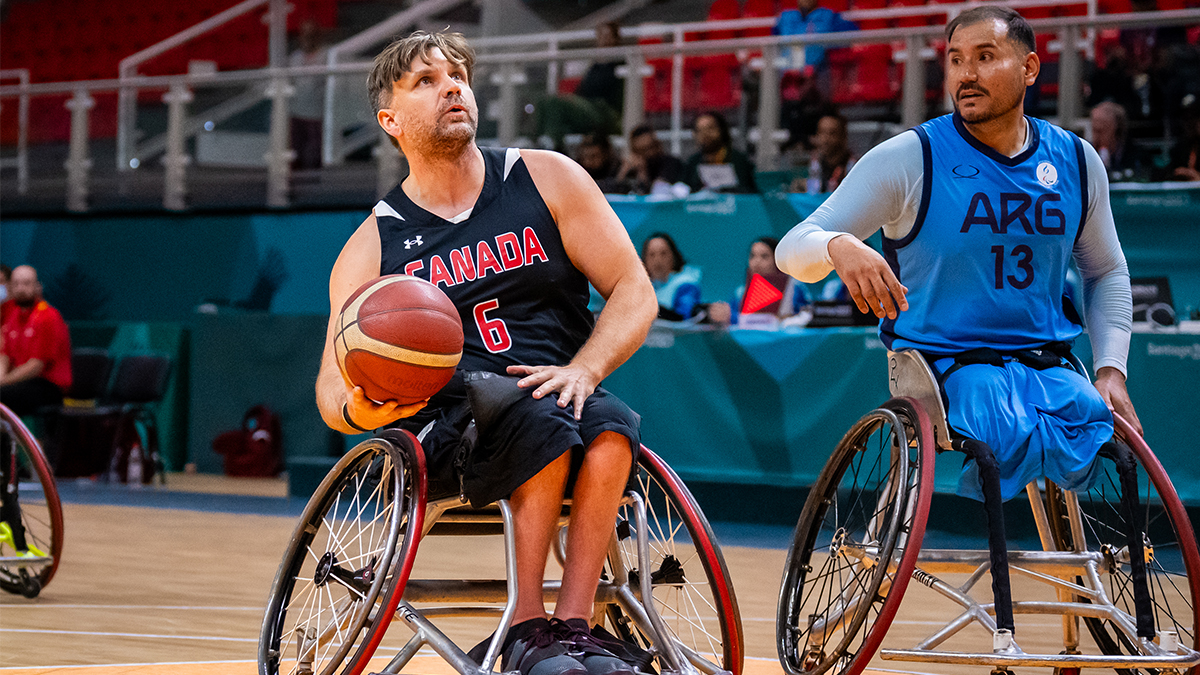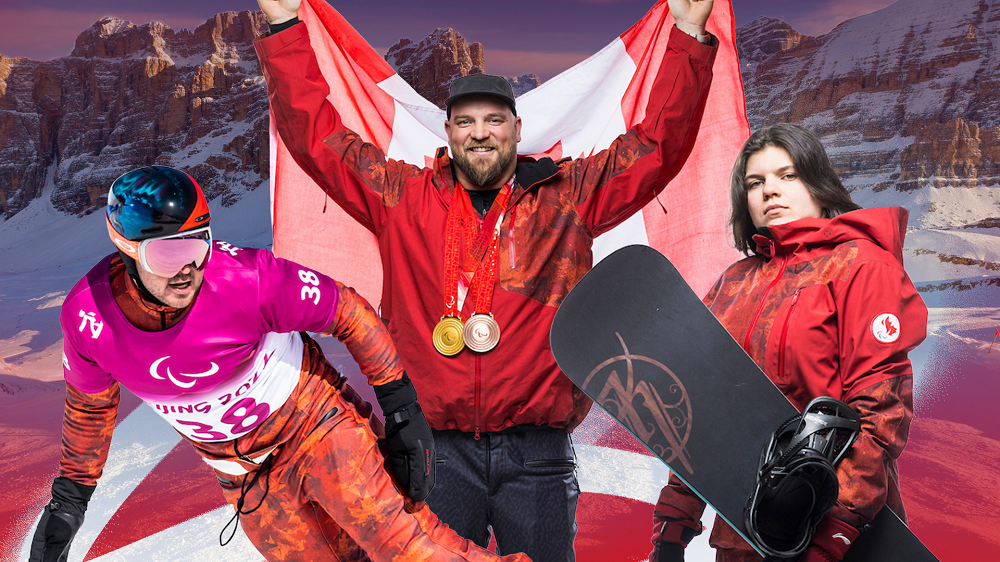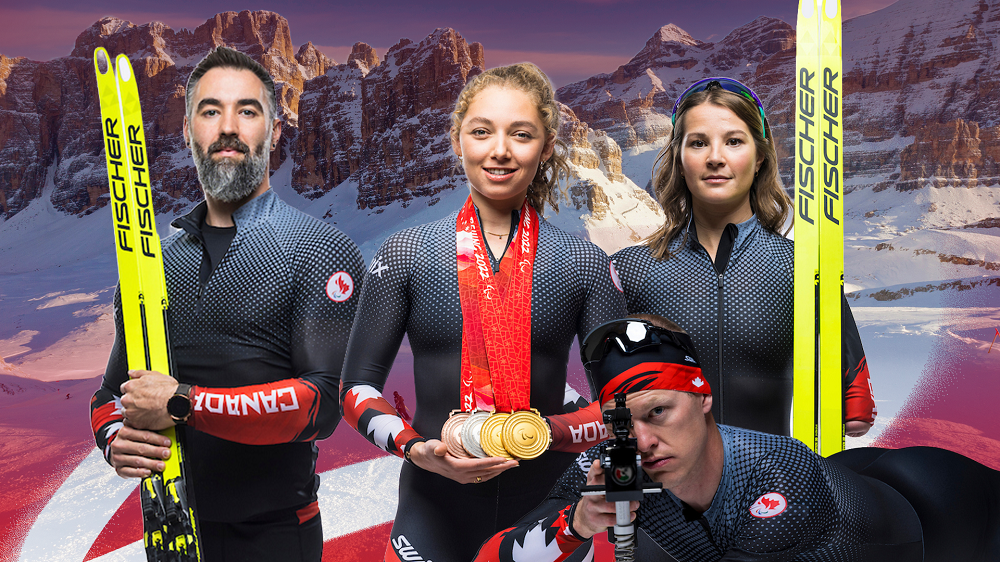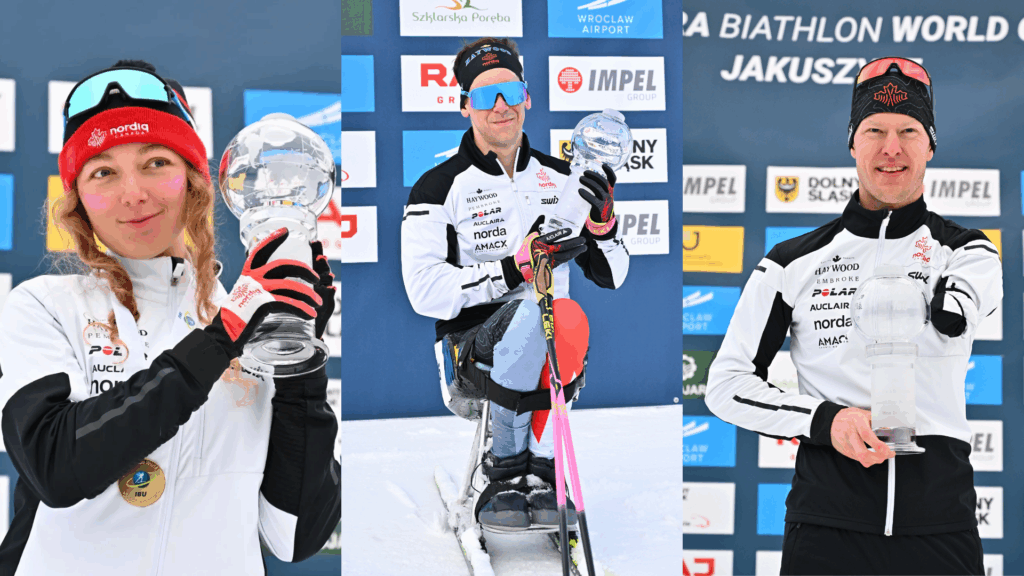Bo Hedges reflects on fatherhood, Canadian team, and wheelchair basketball future
The four-time Paralympian recalls the “Amazing experiences” during his illustrious career.

TORONTO – Bo Hedges, a veteran player on Canada’s men’s wheelchair basketball team and vying this week for a fifth Paralympic Games appearance, is enjoying his new life as a father of an infant daughter.
“Her arrival has definitely changed things and it’s been an amazing experience,’’ said Hedges in February in an interview at the CPC’s content and media content summit. ‘’It’s so cool and I feel very fortunate.’’
When you’re 44 and still playing on a national team, self-discipline is not a problem. While the family addition tightens the grip on the schedule, Hedges is making the necessary adjustments to his new life.
‘’She adds a whole new element to the off-court training,’’ Hedges said. ‘’I’m helping Mom out as best I can, but I’ve always had a good perspective on separating life from sport. Sport isn’t the end-all and this has given me a fresh perspective.
‘’I’ve always been able to get up in the morning, so I don’t mind it. I usually get up first thing with her and prepare for the day and make sure everything is planned out.’’
Hedges is sort of a father figure these days on the rebuilding men’s wheelchair basketball team. Veterans like himself and Pat Anderson have seen the best of times and the worst of times over the last decade and more.
The team was the toast of the world back in 2012 when it won the gold medal at the London Games. Four years later after some key retirements it shockingly dropped to 11th place at Rio 2016.
Guided by head coach Matteo Feriani, veterans like Hedges and Anderson helped keep the ship steady with their patience, dedication to the cause, and confidence in the newcomers.
Suddenly Canada is reclaiming its turf on the international map placing eighth at Tokyo 2020 and rising to sixth at the 2023 world championships.
‘’It’s just trying to reassure the guys,” he said. ‘’The young players need to develop and they need that international experience. You just got to keep building for the big moments such as the Paralympics or the world championships.’’
Hedges knows about patience. He grew up on a cattle farm at the foothills of the Rockies in Wonowon, B.C. with his parents and three siblings. They rode horses and chased cows and enjoyed a memorable life without the infrastructures and luxuries which were part of most Canadians’ lives.
‘’We didn’t have hydro and got our first generator when I was five or six,’’ Hedges recalled. ‘’We didn’t have a telephone till we were about 16 and had one of those big mobile phones in the truck if there was an emergency.’’
He was injured at age 13 when he fell off a tree while vacationing in Ontario and fractured the T12 and the L1 vertebrae.
Hedges first discovered wheelchair basketball at the GF Strong Rehabilitation Centre in Vancouver, B.C. He later witnessed a demonstration game in his native Fort St. John, prompting him to form a local club team of his own.
He began playing the sport competitively in 1996 and by 2007 he was headed to the Parapan Am Games. He has since become a stalwart of the Canadian national program competing at all four Paralympics since 2008.
Despite his impressive fitness level, Hedges realizes that the end of his playing career may arrive sooner than later.
‘’Life after basketball is coming for sure,’’ said Hedges, who earned a Master’s Degree from the University of Alabama in sport management and a degree in business administration at the University of Northern British Columbia.
‘’I would like to get into some nonprofits or working for the city and I enjoy grassroots coaching, helping kids. Plus, I’m still helping my parents as best I can on the ranch, and I plan on continuing to do that.”
Hedges has his fingertips on the sports pulse in Canada. He was an AthletesCAN board member from 2017 to 2023 and has been a B.C. Wheelchair Basketball Society board member since 2007.
‘’The issue of an equal playing field is important for me,” he said about his involvement in sport off the court. ‘’Some of my work with BC wheelchair basketball is just grassroots to help people with a disability in rural areas so they have that opportunity to play sport. Being healthy is huge in terms of where I am and my social development.
‘’I want to hopefully try and provide some of that for other people.’’
Sounds just like a concerned father.



"*" indicates required fields
"*" indicates required fields